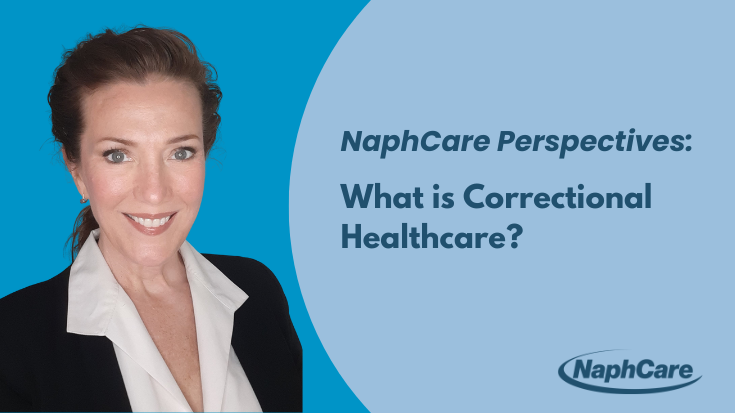
Read more
By Jason Douglas
Originally published by healthcarebusinesstoday.com on April 23, 2025.
Over the past two decades, the management of healthcare records in correctional facilities has undergone significant transformation. The industry has long faced challenges, including the inability to effectively analyze data, generate accurate reports, and ensure transparency, which left room for document tampering. Fragmented oversight complicated coordination of offsite care, scheduling issues hindered patient follow-up, and inefficient data systems failed to securely transfer critical information.
Recognizing the need for improved solutions, the launch of TechCare in 2004 marked a pivotal step forward. As the nation’s first corrections-specific electronic health record (EHR) system, TechCare was developed to address the unique needs of patients and healthcare providers in correctional facilities. Since its inception, it has played a crucial role in bridging the gap between technology and healthcare, ensuring that patients receive timely, efficient, and high-quality care.
As 2024 marked the 20th anniversary of TechCare, reflecting on the industry’s progress is vital for continued innovation. Examining TechCare as a case study, it’s clear that specialized solutions have enhanced healthcare interoperability in correctional facilities, offering valuable insights into the potential for technological innovation to drive meaningful changes across the broader healthcare sector.
Correctional healthcare presents a distinct set of challenges. Unlike traditional healthcare settings, jails and prisons require solutions that address security concerns, fluctuating patient populations, and seamless coordination between medical professionals and correctional staff. TechCare was built from the ground up to tackle these issues head-on.
One of the most notable advancements has been TechCare’s ability to integrate a comprehensive EHR with real-time reporting to inform data-driven decision-making. By enabling providers to track patient history, medication administration, and treatment plans, it reduces errors and improves outcomes. The platform’s interoperability with external healthcare systems also ensures that patient care remains consistent when individuals enter or exit the correctional system, promoting continuity of care.
Despite advancements in health technology and regulations intended to promote interoperability, such as the American Recovery and Reinvestment Act of 2009 and the 21st Century Cures Act in 2016 – many hospitals are still falling short of utilizing solutions to their highest potential to achieve optimized interoperable results and ecosystems. A 2020 study revealed that only 40% of hospitals successfully integrate data from external sources electronically, with many still relying on outdated methods for patient record keeping, like mail and fax. These barriers to interoperability hinder the flow of information, making it difficult to optimize care delivery and improve patient outcomes.
TechCare’s impact and deployment in correctional facilities provides a valuable example of how technology can overcome these challenges. By integrating with Offender Management Systems (OMS), pharmacy vendors, lab services, and radiology providers, it eliminates data silos and enhances coordination. Its bidirectional interfaces allow for real-time updates to patient demographics, medication records, lab results, and imaging studies, enabling clinicians to make informed decisions quickly, without the need for manual intervention.
Technology should enhance patient care – not hinder it. Effective solutions should be designed with the end user in mind, with clinical and operational teams working closely with development teams to create intuitive, efficient, and adaptable workflows. TechCare achieves this through leveraging automation, which streamlines documentation processes, reduces administrative burdens, and flags critical health concerns for early intervention. This proactive approach enables medical professionals to focus on what truly matters most: providing effective, quality care.
Healthcare technology is ever changing, and TechCare has been continually refined over the past two decades to stay ahead of emerging challenges. Recent innovations, such as telehealth integration and advanced analytics to predict patient needs, exemplify TechCare’s commitment to pushing the boundaries of what’s possible in correctional healthcare.
One of TechCare’s latest innovations is its custom mental health classification system. This system generates mental health ratings and classifications for each patient based on their mental health records, allowing staff to better monitor higher-risk individuals. This approach aligns with broader mental health management trends and demonstrates how tailored, interoperable workflows can enhance the execution of existing practices.
Reflecting on its impact, TechCare now operates in 233 correctional facilities, managing over 154,000 active patient records daily.
Looking ahead, the mission remains clear: to use technology to improve the quality, accessibility, and efficiency of healthcare in correctional settings. With ongoing innovations on the horizon, including AI-assisted diagnostics and expanded telemedicine capabilities, the future of correctional healthcare promises even greater improvements in care delivery.
For more than 20 years, TechCare has been more than just an EHR – it has served as a catalyst for change in correctional healthcare. The industry continues to evolve, and while there is still much work to be done, the progress achieved underscores the potential for technology to address the unique needs of correctional healthcare and drive positive change across the healthcare system.
As Chief Technology Officer, Jason oversees the development of all software systems at NaphCare, including the architecture and implementation of NaphCare’s corrections-specific electronic operating system, TechCare. Jason’s ability to understand the complexities of correctional healthcare has allowed him to identify and apply technologies to streamline NaphCare’s Proactive Care Model and provide superior service to our partners.